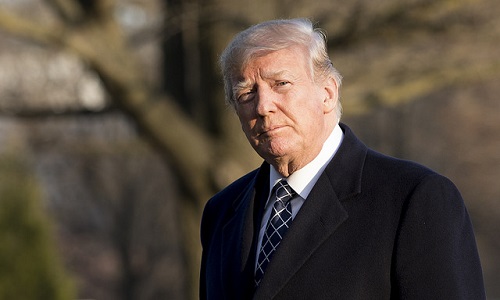Several blue states already have legislation in the works to block Trump from the 2020 presidential ballot unless he releases his tax returns, with more than a dozen states saying they are going to follow suit.
So, the question everyone wants to know is if this is legal and they will be successful in keeping Trump off the ballot?
The answer, to use a single word, is “NO.”
The Constitution
Democrats can pass all the legislation they want, but this all comes down to what is constitutionally required to run for president.
The Constitution of the United States covers presidential eligibility in Article 2, Section 1, Clause 5:
“No person except a natural born Citizen, or a Citizen of the United States, at the time of the Adoption of this Constitution, shall be eligible to the Office of President; neither shall any Person be eligible to that Office who shall not have attained to the age of thirty five Years, and been fourteen Years a Resident within the United States.”
There is no mention of tax returns anywhere in the Constitution regarding eligibility, so it will make the measure being taken by Democrats very difficult to withstand any scrutiny.
At no time has releasing tax returns to the public been mandated for candidacy, it is just a “tradition” that has been respected for the last four decades or so.
Donald Trump has maintained he is currently and seemingly always under audit and furthermore, he just does not want his tax returns made public.
As an American, Trump has a right to privacy, especially if there is nothing legally requiring his tax returns to be made public.
Democrats, of course, are trying to create a reason to get them but to this point, they have been unable to do so.
Currently, they are using alleged business practices by Trump to get their hands on them, but that case is currently with the New York Attorney General and will likely be held up in the courts for years.
The Precedent
Now that at least one state has moved forward with this legislation, there is no doubt at all it will eventually land in front of State Supreme Courts and could very well end up on the docket of the Supreme Court of the United States.
Thankfully, there are precedents in place that will back up Trump’s right to keep his tax returns private.
In 1966, New York City Congressman Adam Clayton Powell, Jr. faced this exact predicament, albeit not with taxes.
House members opposing Powell tried to block him from the ballot due to scandalous reports about the congressman.
In Powell v. McCormick, the Supreme Court eventually ruled “the House was without power to exclude him from its membership.”
More recently, in 1992, the Supreme Court blocked an attempt by Arkansas to restrict term limits of federal officeholders in U.S. Term Limits Inc. v. Thornton.
Arkansas voters actually voted for an amendment to the Arkansas State Constitution to limit House terms to three and Senate terms to two.
Again, the Supreme Court stepped in to say the state had overstepped its reach by putting restrictions within a specific state for a federal election.
Justice Stevens opinion stated, “Allowing individual states to adopt their own qualifications for congressional service would be inconsistent with the Framers’ vision of a uniform national legislature representing the people of the United States.
“If the qualifications set forth in the text of the Constitution are to be changed, that text must be amended.”
The current group of Justices collectively respect precedent, so there is every reason to believe these two precedents would nullify any effort by blue states to require Trump to release his tax returns to the public in order to be eligible to be on a state ballot for the 2020 presidential election.
Sources: New Republic / Heritage.org
We depend on our readers to help us get the word out. So, if you agree with this article, please like and share the article on your favorite social media outlet.
